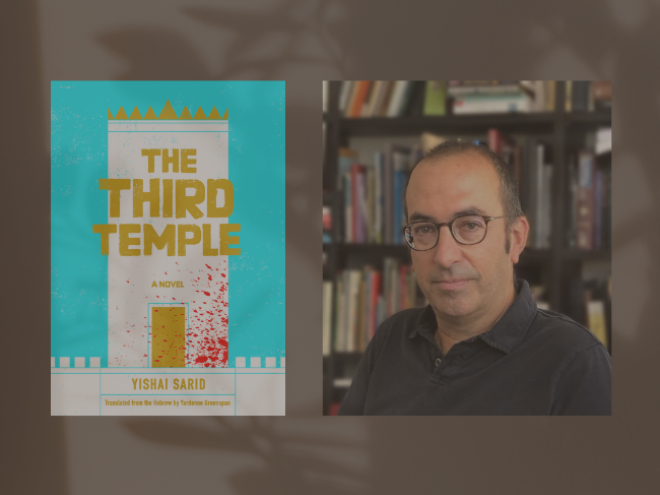Yishai Sarid’s latest book, The Memory Monster, offers a new and unsettling perspective on the Holocaust. The Israeli novelist plunges readers into a tale that is deceptively simple on the surface, but takes readers deep into the horrors of the Holocaust. The story centers on the mental disintegration of a historian obsessed with committing to memory Nazi methods of extermination in Poland, and then contextualizing them — with diminishing success — for new generations.
This epistolary novel begins with the unnamed narrator writing to the chairman of the board of Yad Vashem: “I appreciate the opportunity to earn your trust.” Through the narrator’s attempt to explain what has led to his situation, readers begin to understand how immersion in Holocaust history has led to his undoing.
The narrator at first envisioned a career as a diplomat but ultimately chose to study history and pursue a PhD in Holocaust Studies. This decision was difficult, he recalls, because “I was afraid. I wanted to continue to cruise through life as on a calm lake, clear of worry and turmoil.” He became a guide at Yad Vashem — in order to earn a living while studying and starting a family — which the chairman he addresses helped arrange at the time. The chairman had asked the narrator if he was aware “of the extreme mental burden the work entailed,” receiving robust “half-truth” reassurances.
The narrator excels in his position; as time passes he is promoted abroad, to guiding tours in death camps in Poland. It becomes increasingly clear that the narrator cannot handle the mental burden, as he sinks into the darkest details of human extermination. Yet he moves to Poland, spending ever more time as a death camp guide in a hostile country. Unable to stop stepping over the line with his detailed descriptions and editorializing, the narrator begins to repel and frighten the groups he is supposed to enlighten. Along the way, Sarid introduces various characters who range from realistic to surreal, including the remaining family member whose loved ones perished in the Holocaust, a former Jewish kapo, a modern gamer with a Holocaust concept, and an Israeli delegation intent on staging a contemporary “liberation” of a death camp.
The Memory Monster is an existential tragedy, but the bleak story is occasionally offset with dark humor. The narrator tires of the flag-waving, singing teen groups who visit the death camps, and, after some memorable missteps, is switched to guiding “general tourists” — vacationers who take day trips to a Holocaust site. “Pretty soon I was missing the students and the soldiers and regretting every negative thought I’d ever had about them,” the narrator writes ruefully.
Sarid’s novel ultimately suggests that the memory monster of the Holocaust is alive and well. As the narrator becomes consumed with memories — triggered by and embodied in the people and geography around him— the tale grows darker. At Belzac his career is finished, when he physically lashes out at evil staring him in the face. In this final act of writing the letter, he contrasts himself with the Yad Vashem chairman, looking “into the distance beyond your window, coolly, never letting the winds of time rattle you.…” The Kafkaesque narrator, in contrast, remains bitten and bleeding.
Amy Spungen, a freelance editor and writer, has a BS in journalism from Virginia Commonwealth University and an MA in English from Northwestern University. She lives near Chicago in Highland Park, Illinois.



